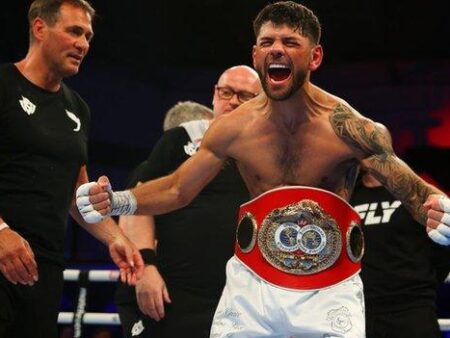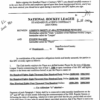In the high-stakes world of professional combat sports, where every punch landed and every submission secured often translates directly into financial gain, a new legal battle is unfolding that dares to redefine the very purpose of athletic ambition. This isn`t a story about multi-million dollar payouts or retrospective damages; it`s a narrative spun around a principle: the inherent right of an elite athlete to test their mettle against the absolute best, irrespective of the corporate banner under which they currently operate.
At the forefront of this unique charge is Phil Davis, a name familiar to followers of mixed martial arts. For five years, Davis plied his trade within the confines of the Ultimate Fighting Championship (UFC), consistently ranked among the sport`s top light heavyweights. Yet, despite his formidable talent, Davis found his competitive scope increasingly constrained. Now, he`s leading an antitrust lawsuit against the UFC, not for a share of its vast profits, but for something far more fundamental: the liberation of competitive spirit.
The Chains of Contract: When Opportunity Knocks, But the Door Is Locked
The crux of Davis`s legal challenge lies in the UFC`s contractual practices. Specifically, the lawsuit targets “restrictive and/or exclusionary clauses” and seeks the implementation of a “sunset provision,” which would allow fighters to terminate their contracts without penalty within one year of execution. For those outside the combat sports ecosystem, this might sound like legal minutiae. For a professional fighter, it`s the difference between pursuing ultimate glory and hitting a glass ceiling.
Davis articulates this frustration with stark clarity: “My ability to fight against the best people in the world has been inhibited. I can’t do that outside of the UFC. That’s a real miscarriage of justice.” He recounts a poignant example: as a Bellator champion, he was unable to secure a rematch against Glover Teixeira, a fighter he had decisively beaten in the past, who later ascended to become UFC champion. The absurdity, Davis implies, is palpable. How can one truly claim to be the best if the path to proving it is artificially obstructed?
A Crusade of Principle: Beyond the Bottom Line
In an era where every major sports story seems to revolve around burgeoning contracts and lucrative endorsements, Davis`s motivation stands out as refreshingly, almost anachronistically, pure. He`s not seeking a single dollar in financial compensation. His unwavering focus is on structural change, on dismantling the very mechanisms that prevent fighters from chasing the pinnacle of their sport.
“All I want is the ability to fight the best,” Davis states, extending this desire not just to himself, but to “every other person who is competing.” It’s a compelling argument: if the sport is to truly evolve, if it is to produce the most compelling matchups and genuinely crown the world`s elite, then the top athletes must be free to challenge each other, irrespective of the promotional banner they fight under. The current paradigm, with its promotional “walls,” seems almost medieval in a globalized sports landscape.
Learning from Others: A Blueprint for True Competition
Davis, a former NCAA wrestling champion for Penn State, draws insightful parallels to other athletic endeavors. He points out the ludicrousness of a scenario where collegiate wrestlers from different conferences would be barred from competing against each other simply due to their institutional affiliations. “No other sports league works in that fashion,” he observes. In wrestling, top-ranked teams from disparate conferences routinely schedule dual meets to establish supremacy. That`s how sports are supposed to work: the best seek out the best, and the victor claims the legitimate top spot.
This analogy cuts to the core of the issue. Why should mixed martial arts, a sport that prides itself on raw, unfiltered competition, be an outlier? Why should artificial business constructs supersede the fundamental competitive drive that defines professional athletics?
The Vision: A Future Where Everyone Wins (Except One)
If Davis`s lawsuit proves successful, the ripple effects could be transformative. Imagine a future where the current UFC champion could realistically face the Bellator champion, or where top contenders from different promotions could square off in truly monumental “super fights.” This would not only elevate the competitive integrity of the sport but also unlock a new level of excitement and engagement for fans worldwide. The market for combat sports, already burgeoning, would likely expand further as true meritocracy takes center stage.
Davis himself frames it simply: “Everyone wins.” And then, with a touch of understated irony, he adds, “There’s one person who would lose.” He doesn`t explicitly name this entity, but the implication is clear: the singular entity benefiting from restrictive practices at the expense of competitive integrity and fighter opportunity. This isn`t a “personal vendetta,” he insists, but rather “just what needs to happen.”
A Defining Moment for MMA`s Evolution
As mixed martial arts continues its rapid ascent on the global sporting stage, it faces a critical juncture. Is it content to remain a fragmented landscape dictated by corporate exclusivity, or will it evolve into a truly open, meritocratic arena where the best always fight the best? Phil Davis`s lawsuit, driven by principle rather than profit, represents a courageous challenge to the status quo. It`s a fight not just for fighter freedom, but for the very soul of competition, promising a future where the loudest statement is made not in a courtroom, but in the cage, against the world`s undisputed elite.










